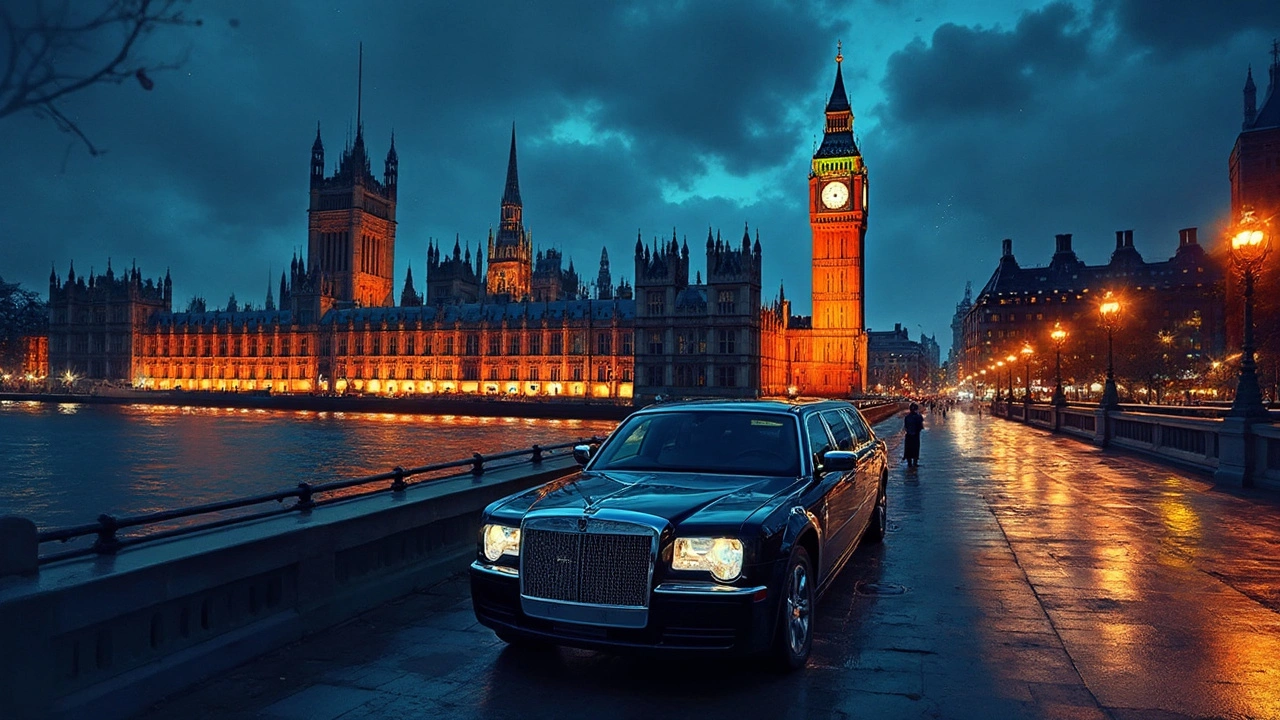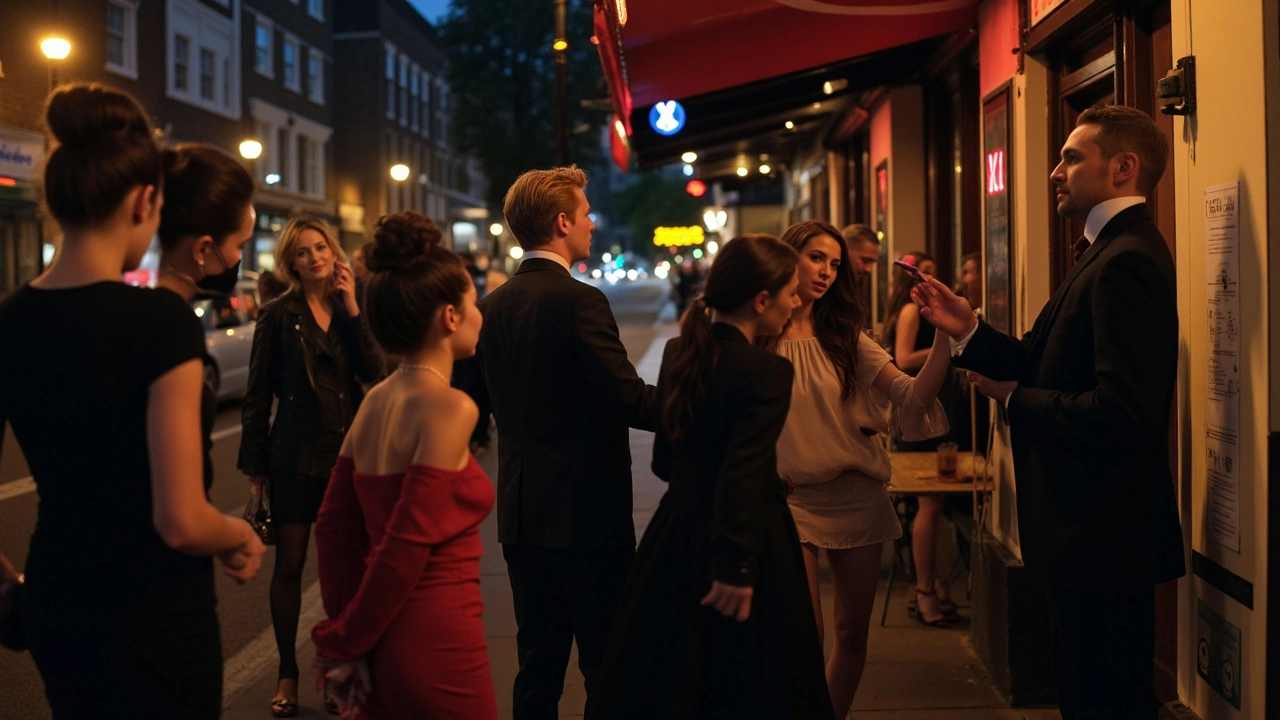Imagine scrolling social media on a random Thursday night and reading another wild thread about call girls. Scandal, stereotypes, rumours—they’ve been flying for decades. But, most people repeating these stories have never actually met a call girl, let alone known what the job is really about in our 2025 world. The stigma sticks around because old ideas linger, and TV rarely gets the real story right.
Let’s rip up those tired cliches. Forget the image from 90s films or the tabloid headlines that pretend one wild story must be everyone’s reality. Here's the backstage pass—an unvarnished look at what being a call girl actually means in London today. If you think it’s all danger, glamour, or desperation, your jaw may drop after this deep dive.
What Is a Call Girl Exactly?
A call girl is an escort who meets clients by appointment, often outside traditional brothels or parlours. Unlike street walkers or low-budget portrayals, call girls usually operate independently or via agencies that handle bookings and basic security. The work can involve anything from social companionship to intimate encounters, depending on boundaries negotiated up front.
Most think the job is secretive and isolated, but research from the UK Home Office in 2024 found that over 70% of London-based escorts describe their work environment as 'controlled' and 'predictable.' Call girls work with a roster of regular, pre-vetted clients, and a decent number are experienced professionals—nurses, teachers, accountants—working part-time for additional income or flexibility. Privacy, clear communication, and personal safety come first in this industry.
Gone are the days of cloak-and-dagger exchanges or penny-pinching madams. Now, tech sets the stage. Screening tools, online reviews, and cashless payments give call girls as much control as possible. They set their rates, choose their meeting places, and decide when to switch off their phones. It’s a professional gig, not an act of desperation.
Why Do Call Girl Myths Matter?
Besides feeding clickbait, these myths paint a warped picture—hurting workers and clients alike. When the public imagines all call girls are victims, law enforcement and policymakers double down on the wrong issues, wasting time on 'crackdowns' instead of focusing on real safety concerns. It can make the job riskier for those who do it by driving it underground and scaring off legit clients.
Even more, stigma isolates women (and men) in the industry, discouraging them from speaking up about abuse or scams. A University College London study last year found that call girls with strong social circles reported up to 55% lower rates of mental health struggles compared to those feeling cut off due to shame or secrecy. Myths fuel that isolation.
For the public, buying into myths blocks smart conversations. Instead of legal debates based on data, we get lawmakers chasing TV tropes. In reality, most clients are ordinary folks—from lonely retirees to travelling professionals. Ignoring their side of the story makes it harder to create better protections or practical laws.
How Does Being a Call Girl Actually Work?
- Bookings and Screening: Most call girls book slots in advance, not at random. They screen clients using ID checks, phone chats, or agency vetting tools. Some even use crime check databases in high-risk situations.
- Setting Boundaries: Negotiations happen before the meeting: location, time, expectations, and the safe word (if needed). Boundaries are always crystal-clear.
- Meeting Clients: Hotels, private flats, or other agreed-upon places—almost never on the streets. Cashless payments or digital wallets add a layer of transparency and safety.
- Post-Session Safety: Many escorts check in with a trusted friend or agency handler after work, sharing location and timing for extra security.
One surprising shift is the growth of professional training. Organisations like the English Collective of Prostitutes now offer workshops on digital privacy, mental health support, and de-escalation. Nearly 65% of independent call girls in London completed some form of safety or business training in 2024, according to a Women’s Work UK survey.
Technology has lowered risk and made things more legitimate. Repeat customers with established reputations tend to make sessions smoother. Many women now use business apps for calendar management, budgeting, and for handling reviews—bringing a bit of the gig economy vibe to an old profession.
Pros and Cons
| Pros | Cons |
|---|---|
| High earning potential (average London rates hover around £200–£400 per hour) | Stigma and judgment from peers or family |
| Flexible scheduling—freedom to set working hours | Legal grey areas create uncertainty |
| Empowerment and control over terms/clients | Risk of unsafe clients or scam bookings |
| Opportunities for social connection and meeting varied people | Potential for emotional fatigue or burnout if not managed |
One fact: research by the Institute for Economic Affairs in 2023 found independent escorts in London made on average two to three times as much as workers in traditional retail or hospitality sectors, with more control over shifts and workloads. But that freedom carries a trade-off—the constant challenge of being misunderstood and navigating outdated public attitudes.

When Is a Call Girl Service Most Useful?
You might be surprised who uses escort services—and why. Yes, some clients want intimacy, but a fair chunk are looking for social connection, conversation, or a companion for business events. With loneliness on the rise (almost one in four Londoners described themselves as 'chronically lonely' in 2024), call girls often provide clients with much-needed human interaction and confidence boosts.
Special occasions, like anniversaries or birthdays, are another common reason for bookings. Some older or disabled clients hire companions for support on days out or to simply enjoy someone’s company without judgement. Unlike mainstream dating, call girl services skip scripts and awkwardness—you get straightforward terms, upfront expectations, and, for many, a better experience.
Business travelers make up a pretty consistent chunk of repeat customers. If you're in London for a few days, want to avoid the maze of nightlife or apps, and value privacy, booking a call girl can be as much about stress-free companionship as about romance.
Common Mistakes to Avoid
-
Assuming TV Stereotypes Are Fact—Forget what 'dramedies' show. Most call girls in London work by choice, and they’re often educated, self-governing, and cautious about risks. Ask real people or read real research before jumping to conclusions.
-
Skipping the Screening—If you’re a client, not going through proper screening or fake-booking details raises red flags and usually gets your booking rejected outright. Safety is non-negotiable.
-
Overlooking Consent—Some new clients assume 'the client is always right.' Wrong. Consent and boundaries are as vital here as anywhere else, and respecting them keeps everyone safe and comfortable.
-
Ignoring Signs of Burnout—Call girls (and clients) sometimes ignore stress or warning signs. Taking breaks, having support circles, and using mental health resources are keys to doing well in this job.
-
Believing All Agencies Are Alike—Just like any business, there are excellent agencies and poor ones. Look for transparent contracts, ongoing support, and credible online reviews before signing up or hiring help.
FAQ
Are all call girls forced into the job?
No, most London call girls in 2025 enter the trade voluntarily, often seeking the flexibility, autonomy, or income that traditional jobs can’t provide. Reports from advocacy organisations show only a small minority are coerced or trafficked.
Is it legal to hire a call girl in London?
Paying for sexual services is legal in the UK, but related activities like brothel-keeping or public solicitation are not. Most call girls avoid legal trouble by operating independently, vetting clients, and meeting in private spaces.
Are call girls always women?
No. While most escorts are women, there’s a robust market for male and transgender call girls as well, especially in a diverse city like London. The job is open to anyone able to establish a discreet and trustworthy profile.
Do call girls offer more than sex?
Absolutely. Many clients simply want company, conversation, or non-sexual companionship for social events, travel, or guidance on relationships.
How do call girls stay safe?
They use multiple safety measures: digital screening tools, agency support, private check-ins after appointments, and workshops on everything from digital privacy to de-escalation skills.
What’s Next?
The myths only stick if we let them. If you're genuinely curious, research from credible sources, talk to those who work in the field, or browse advocacy platforms like English Collective of Prostitutes. Whether you want to book an escort, enter the industry, or simply see the human side behind the sensational stories, approach it with open eyes—and ditch the tired stereotypes.







Farrah Kennedy on 1 August 2025, AT 18:36 PM
Seriously, the way people romanticize or demonize escort services is wild. Like, no one talks about the fact that just like any other profession, it's a spectrum—from those doing it out of necessity to those who choose it as a career path. I love how this post calls out myths because honestly, society loves to paint escorting with one dirty brush.
There’s also the whole narrative about morality and victimhood that gets shoved down everyone’s throats. It’s all so reductive. The truth is out there—people are complex, their motivations even more so.
This mythbusting needs to happen more often to bust the stigma and maybe, just maybe, shift the conversation from shame to understanding.